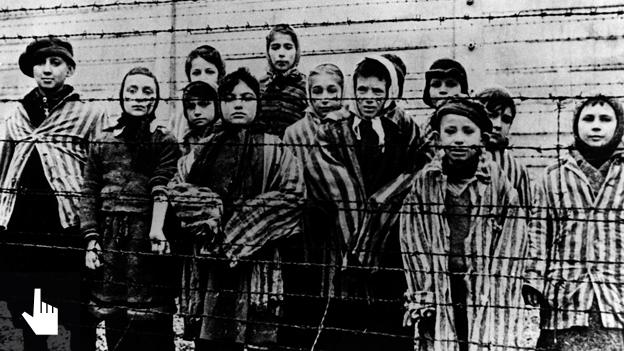Auschwitz medic Hubert Zafke goes on trial at fourth attempt
- Published
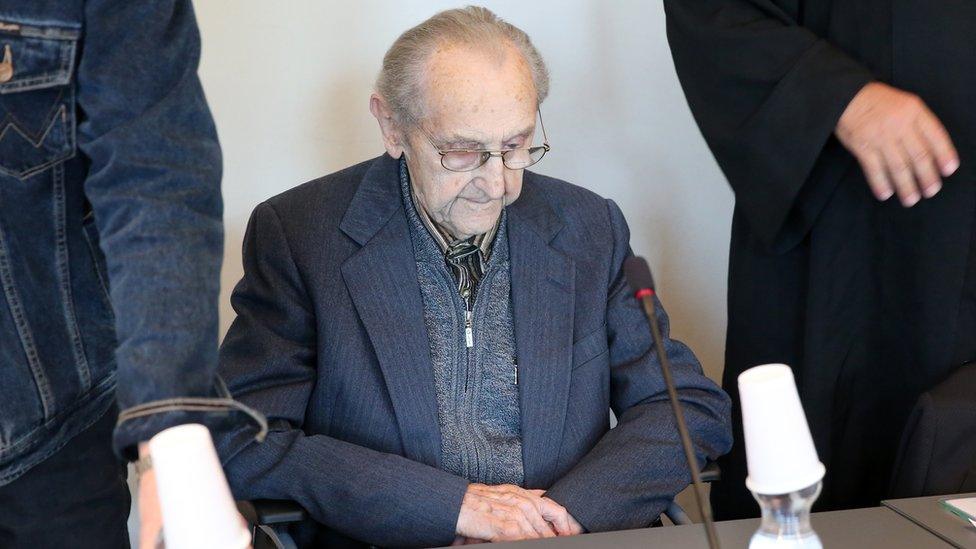
Hubert Zafke appeared in court on Monday in a wheelchair
A 95-year-old former SS medic has gone on trial in Germany, after his mass murder trial was postponed three times for health reasons.
Hubert Zafke appeared in court in Neubrandenburg in north-eastern Germany accused of assisting in the killing of 3,681 people at the Auschwitz death camp.
The indictment covers one month, from 15 August to 14 September 1944.
The Nazis killed about 1.1m people in Auschwitz, most of them Jews.
Shortly before the pre-trial hearing began, Hubert Zafke was given a medical check to determine under what conditions the trial could take place.
On three previous occasions the trial has been postponed. His defence has argued he suffers from poor health, high blood pressure and suicidal thoughts.
Zafke's role at Auschwitz
According to the indictment, the SS medic served for several weeks in the summer of 1944 in the medical unit at Auschwitz during World War Two.
Hubert Zafke denies the charges, arguing he treated only wounded soldiers and members of the SS.
Prosecutors say that, like other SS guards at Auschwitz, Mr Zafke was well aware of the camp's function as "an industrial-scale mass murder site". According to the indictment, thousands of people died while he was there.
Teenage Jewish girl Anne Frank arrived at Auschwitz-Birkenau during the period covered by Hubert Zafke's indictment. She died in another camp, at Bergen-Belsen, shortly before it was liberated by the British Army in 1945.
The chances of securing convictions for the last surviving Nazis have become harder as the remaining defendants are all now in their nineties.
In June, a German court sentenced former Auschwitz guard Reinhold Hanning, 94, to five years in jail for being accessory to the murder of at least 170,000 people.
But a state court in the northern city of Kiel ruled on Friday that a 92-year-old woman, Helma M, was unfit to stand trial on charges of being accessory to 260,000 counts of murder. She was the SS radio operator for the commandant at Auschwitz.

Will any more Nazis go to jail?
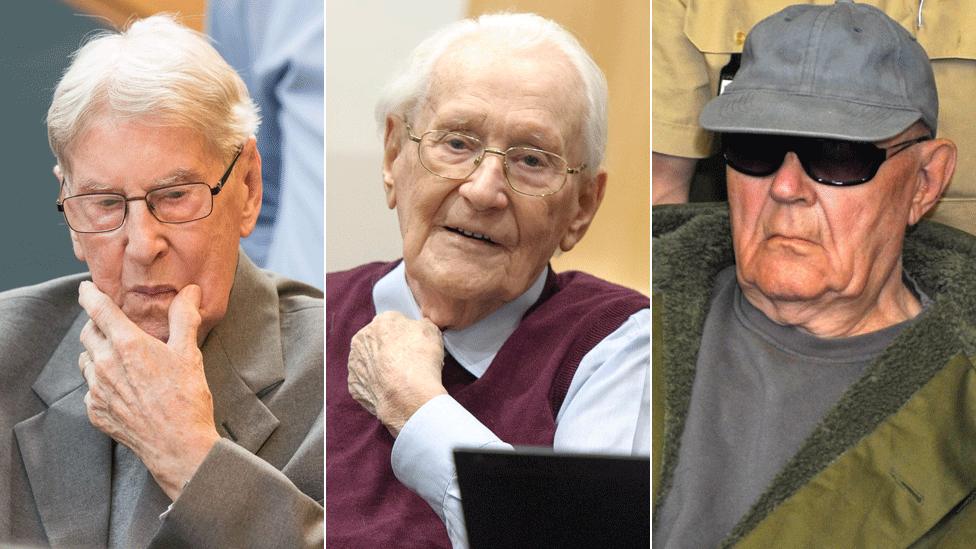
From L to R: Reinhold Hanning, Oskar Groening and John Demjanjuk
Time is running out to bring remaining Nazis to justice. Even those convicted rarely go to jail as every case is delayed by ill health and the slow course of justice.
Reinhold Hanning's five-year sentence this year is likely to wind up at Germany's federal court of justice, external in Karlsruhe, in the same way as a four-year jail term handed down to so-called "Book-keeper of Auschwitz" Oskar Groening, 95, in 2015.
Some Nazi trials will never even start, as with the case against Ernst Tremmel, who died in April a week before he was due in court.
It was only in 2011 that German prosecutors were given the green light to put suspects on trial without evidence of direct involvement in killings.
Sobibor death camp guard John Demjanjuk was given five years in jail for helping in the murder of 28,000 Jews. He died in a nursing home in 2012 while still fighting the conviction.

Auschwitz-Birkenau death camp
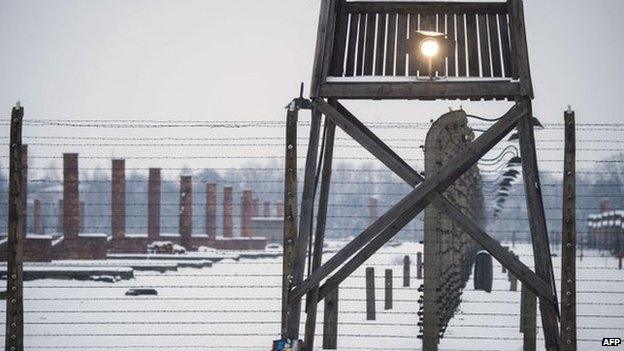
Construction began in 1940 on a site that grew to 40 sq km (15 sq miles)
About one million Jews were killed at the camp in Nazi-occupied Poland
Other victims included Roma (Gypsies), disabled people, homosexuals, dissidents, non-Jewish Poles and Soviet prisoners

- Published15 July 2015
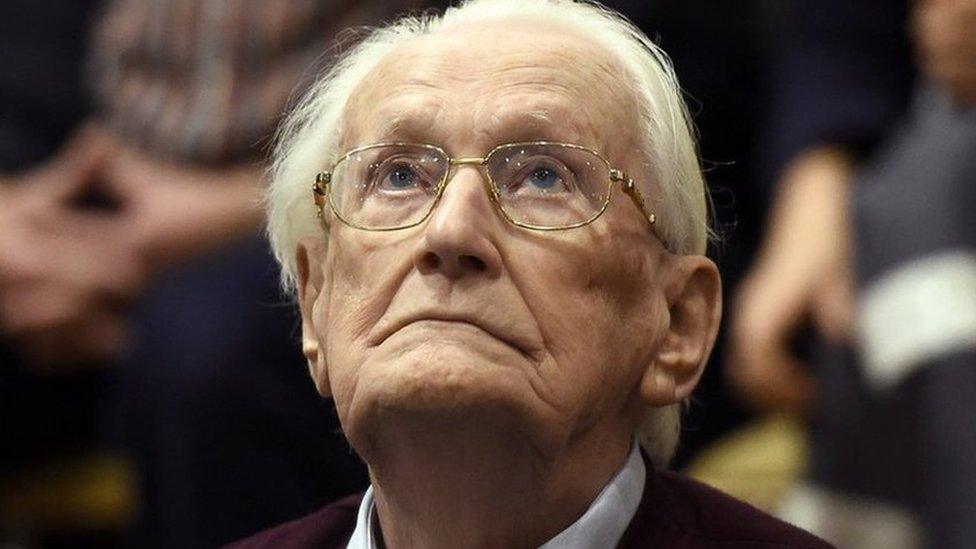
- Published29 April 2015
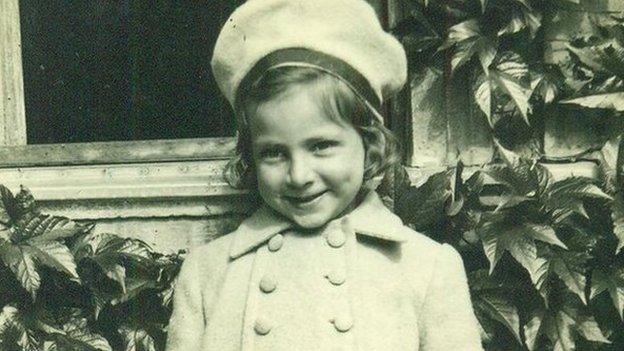
- Published27 January 2015
